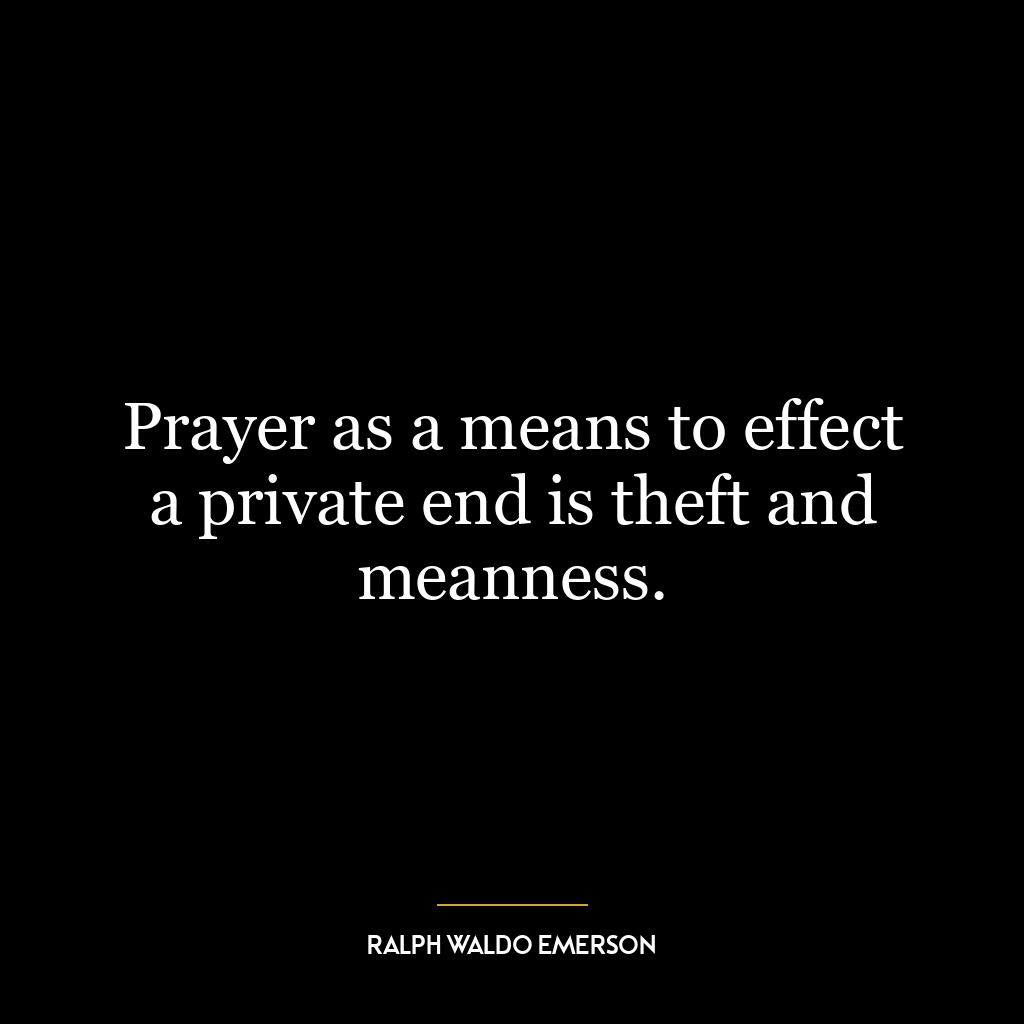Prayer as a means to effect a private end is theft and meanness.
This quote suggests that using prayer to achieve personal gain is a selfish act, akin to theft, and reflects a lack of moral character.The essence of prayer, as Emerson sees it, should not be about asking for personal benefits or material possessions. Instead, it should be about seeking spiritual growth and enlightenment or expressing gratitude.
Emerson likens the misuse of prayer for private ends to theft because when one prays for their own benefit, they are essentially trying to manipulate divine power for selfish reasons.This is similar to stealing as it involves taking somthing without giving anything back in return. Its also mean-spirited as it shows a lack of consideration for others’ needs.
In today’s world where consumerism and self-interest often take precedence over altruism and spirituality, this quote reminds us that true fulfillment does not come from material possessions but from inner peace and spiritual growth. It encourages us to use prayer as a tool for self-improvement rather than personal gain.
In terms of personal development, this idea could inspire us to seek spiritual growth through practices such as meditation or mindfulness instead of focusing solely on achieving our desires. By doing so, we can cultivate traits like empathy and kindness while reducing negative emotions like greed or envy.
Moreover, in the context of social justice movements today where collective action is essential in effecting change – praying or hoping only for individual success can be seen as counterproductive if not harmful. People are encouraged instead to pray with communal goals in mind; with hope towards societal improvement rather than merely individual advancement.
Overall the quote serves as an importent reminder about the purpose and power of prayer – that it should serve higher purposes beyond just our own needs or wants; promoting selflessness over selfishness.















